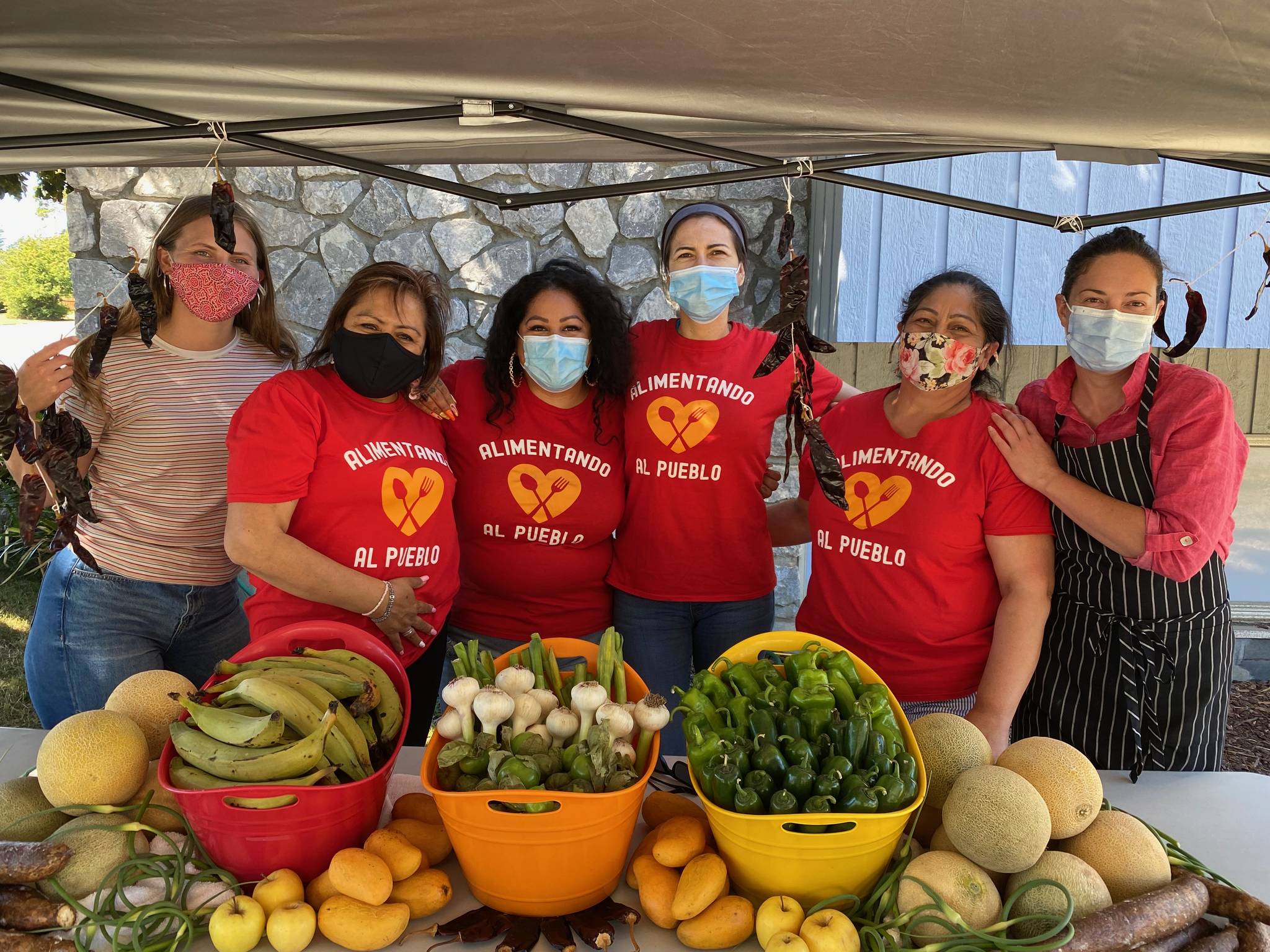Submitted by the Orcas Island Food Bank.
Roxana Pardo Garcia says the first step in attracting food-insecure Latinx/Hispanic people to take advantage of the services of a food bank is to establish trust.
The second step is to provide the food, mainly fresh, that Latinx/Hispanic peoples have been accustomed to eating.
Pardo Garcia is co-founder and project lead of Alimentando al Pueblo (Feeding the Village), an organization founded in July 2020 to provide food to the Latinx/Hispanic community in the Highline area of King County, specifically in the cities of Burien, Des Moines, Normandy Park, SeaTac, and White Center.
At the invitation of the Orcas Island Food Bank, Pardo Garcia visited Orcas Island June 24–27, along with co-founder and packing team lead Patricia Palomino, co-founder and packing team member (and Roxana’s mother) Hilda Pardo, and Olga Rodriguez, a distributor of Latinx foods.
OIFB is engaged in an ongoing effort to stock the foods that its customers most want to eat. About 8% of OIFB customers are Latinx/Hispanic, primarily members of families whose origins are in Mexico or El Salvador. Like every other segment of the population that the food bank serves, their primary response to an OIFB poll to assess customers’ needs/wants was “fresh food,” including organic and local fresh food.
Beyond that commonality, OIFB’s Latinx customers had requests particular to their culture and experience. The food bank responded by stocking dry goods — hominy, menudo, mole, tortillas, dried chiles, masa harina — and fresh produce — chiles, tomatillos, yucca, plantains, chayote.
“Some products were flying off the shelf, others not,” said OIFB manager Amanda Sparks, who added, “We also had a feeling, especially when many people were laid off as a result of the pandemic, that there were people who could benefit from our services but who weren’t coming — including some Latinx/Hispanic Orcas residents. We invited Roxana and her team to help us overcome these barriers.”
In a talk at a dinner at Family Tides Farm, which hosted the group, Pardo Garcia described how Alimentando al Pueblo made people feel welcome — and joyful — at their curbside food distributions by playing Mariachi and other genres of Latinx/Hispanic music. “Celebrating our culture is empowering,” said Pardo Garcia.
Rodriguez, the food distributor, told us that many Latinx/Hispanic consumers are brand loyal: “If my abuela bought it; I’m buying it.” Together with OIFB staff, the Alimentando al Pueblo team checked out what’s available at Orcas Island food stores and at the food bank, and got input from Latinx/Hispanic food bank customers. Rodriguez is preparing a list of foods that would most meet the needs of the Orcas Latinx/Hispanic community. Sparks said that building vendor relationships with the other grocery stores on the island could help make these products available.
Wide-ranging discussions between OIFB staff and the Alimentando al Pueblo team included topics such as how to get food to construction crews and others who, in the summer, often work from dawn to dusk; how to make undocumented people feel secure about using OIFB’s services, and how the two food banks could help each other in the future.
OIFB extends special thanks to the Family Tides Farm team for hosting our guests and creating an opportunity for community food stakeholders to meet at the table, discuss our findings, and collaborate.
We hope to invite Roxana and her team back in September and seek lodging hosts and sponsors. If you feel inspired by our collaborative work to expand LatinX /Hispanic food access on Orcas Island, please contact us for more information.
To answer the headline question, “food bank” in Spanish is “banco de alimentos.”
Orcas Island Food Bank is located at176 Madrona Street in Eastsound next to the Community Church. Their hours are Monday 3 p.m. to 6:30 p.m., Tuesday and Friday noon to 6:30 p.m.




